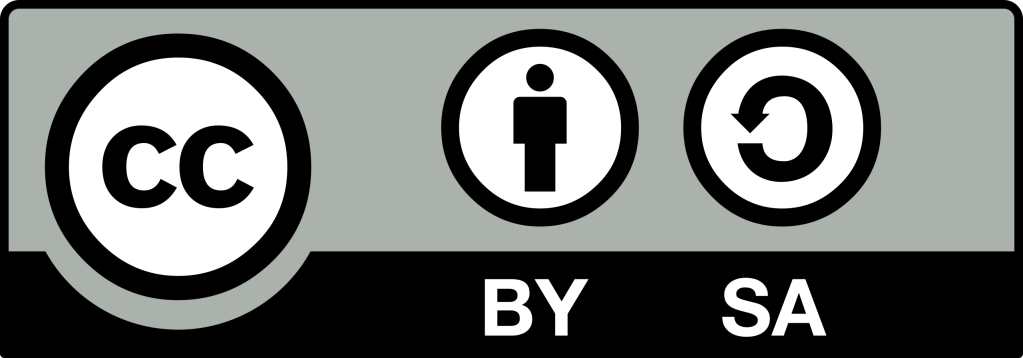Academic Fracking: When Publishers Sell Scholars Work to AI
Further discussion of publisher practices selling scholars' work to AI companies
Last week, I explored AI and academic publishing in response to an article that came out a few weeks ago about a deal Taylor & Francis made to sell their books to Microsoft and one other AI company (unnamed) for a boatload of money.
Since then, two more pieces have been widely shared including this piece from Inside Higher Ed by Kathryn Palmer (and to which I was interviewed and mentioned in) and this piece from Chronicle of Higher Ed by Christa Dutton. Both pieces try to cover the different sides talking to authors, scanning the commentary online, finding some experts to consult and talking to the publishers. It’s one of those things that can feel like really important and also probably only to a very small amount of folks that find themselves thinking about academic publishing, scholarly communication, and generative AI.
But given that those three things are serious parts of my research and work, I continue to have thoughts so I wanted to return to the discussion
.
Academic Fracking
By publishers selling authors’ works to Microsoft AI and other AI companies, it made me think about why it felt familiar and left a sour taste in my mouth. Then, a phrase popped into my head the fit near perfect: “Academic fracking.”
First, there’s often the comparison that academic publishers make serious profits like big oil companies. Academic publishers’ profit margins have been known to be as much as 40%. Additionally, like oil companies, academic publishers get a lot of free assistance. While oil gets lots of government subsidies and externalize the cost of the environmental harm they do, academic publisher gets its products (books and articles) nearly, if not entirely free from the author, sometimes making the author pay, and usually free peer review. Yes, they pay for editors, but at the end of the day, they hustle a product they do so very little to actually support. After getting the product seriously cheap, they then sell it back to academia and society as a whole at exorbitant costs.
Meanwhile, just like oil, academic publishers make the environment in which they operate, worse off—particularly for those at the margins. Between paywalls and preventing libraries from granting access to their databases to the public, academic publishers make it incredibly hard or near impossible for independent scholars to be scholars.
Furthermore, more than 60% of all research funding comes from taxpayers in the form of local, state, and federal government funding (a significant portion of research funding also comes from the institutions themselves—which also likely comes from the federal government in the form of Pell grants to help with tuition). Tax money funds research, scholars do it and write it up, and then academic publishers put it behind paywalls. Thus, public and private colleges, hospitals, government entities at the local, state, and federal levels, nonprofit agencies, and everyday folks must pay to access the same research separately. In the case of organizations, they must repeatedly pay for access because of publishers’ use of subscription models.
To recap: Academic publishers get free labor (scholars doing research), free knowledge (research funded by taxpayers), and at times, will charge scholars if they want their work publicly available (e.g. Nature charges over $11,000 for open access articles).
But that is not enough and so publishers are choosing to sell (for hefty profits) those same free resources to Microsoft AI and some other company (inevitably, they will sell to other AI companies, no doubt). If we understand fracking as an attempt to extract more from an oil well that a company thought was already sucked dry and to do so through a questionable and caustic practice that is environmentally toxic—well, the metaphor fits pretty dang well.
Publishers are taking what they already made money on and trying to get even more from it. In the case of Taylor & Francis, without letting people know about it. This not only creates a (more) toxic environment within academic publishing, where many authors already felt frustrated and disempowered before this but also creates a murky future that is unclear about how scholars’ work will be effectively recognized in ways that count.
The Origins of Academic Fracking
So that’s where my mind went—but I also wondered and suspected that I might not be the first to come up with or use the term “academic fracking.”
Sure enough, I went to Google Scholar and found there were a few citations. The most relevant one is the following:
Ulmer, J. B. (2019). The Anthropocene Is a Question, Not a Strategic Plan. Philosophy and Theory in Higher Education, Special Issue on the Anthropocene in the Study of Higher Education. http://doi.org/10.3726/ptihe.2019.01.04
There’s a lot of great ideas in this essay. Ulmer uses the metaphors of academic fracking and strip mining knowledge to critique contemporary academic practices and draw parallels between industrial extraction methods and how knowledge is often produced in higher education.
Just as fracking uses high pressure to force out resources, academics face intense pressure to produce research and publications. This pressure can create "fissures" in their mental and physical well-being. Like extracting gas and oil, academics are pushed to extract ideas and insights, often at an unsustainable pace. Fracking can have negative long-term environmental impacts for short-term energy gains. Similarly, the pressure for rapid academic production might lead to short-term career gains but potentially sacrifice deeper, more thoughtful scholarship. Fracking can destabilize geological structures. Ulmer suggests that intense academic pressure might similarly destabilize the foundations of careful, ethical research practices.
All of this certainly resonates with how scholars may be experiencing academia and the pursuit of tenure-track or secure positions. That exists and academic publishers feel like one more extractive force in the structure. Their attempt to cash in on generative AI without fair notices, the ability to opt-out, or financial incentives feels like one more destabilizing element.
But what the publishers are doing may feel less like fracking as Ulmer describes it and more like strip mining knowledge.
Like strip mining removes surface layers to access resources, the selling of academic work to AI companies prioritizes easily accessible, surface-level knowledge rather than deeper, more nuanced understanding. That is the promise of generative AI when it comes to knowledge production. And while there’s a value in that, it’s a question of whether scholars had to be stripped of their created knowledge.
Strip mining leaves visible scars on the landscape. Ulmer suggests that certain academic practices might similarly leave "scars" on the intellectual landscape, potentially damaging the integrity of scholarship. This, too, strikes at a concern about the integrity of what was said, who said it, and how it fits into the context of whatever the AI is putting out. Since we cannot see how it will be used, we are left wondering.
Just as strip mining treats the earth as a resource to be exploited, publishers treat data or knowledge as a commodity to be extracted and capitalized upon, rather than as something to be carefully cultivated and respected. This is what is most challenging about academic publishing. They prey and profit on a model of scholarship and knowledge creation that is dependent on research being accessible. It is supposed to be “give-away literature”.
Whether it’s academic fracking or strip-mining knowledge, significant concerns exist about how publishers and AI companies make use of scholarly knowledge and pouring it into these AI tools.
What About The Possibilities?
I recognize that this is an awful lot of hand-wringing. But I’m also finishing a dissertation that has deeply explored how disenfranchised scholars feel with academic publishing—so I have a unique position to speak with some authority on this.
Still, I realize that at the end of the day, yes, we want AI tools to be fueled with peer-review research and knowledge developed by experts (though we should still be suspect given the history of experts over the last 500 years and how wrong they were on so many things—how do AIs navigate conflicting data and information, especially when the outdated knowledge may be more cited but less accurate?).
Pieces like this in the Scholarly Kitchen remind us of some solid possibilities for using AI in great ways. For instance, AI can be used for insights with tools that help readers investigate and understand longer texts. Hinchliffe also presented AI as a coach that could support readers, especially students, in developing knowledge and skills. Finally, we can see AI tools that could make scholarly content more accessible and understandable to a broader audience--which is definitely something I am down for.
If we are ever going to get the AI that we hope for—the kind that is insanely helpful, accurate, and insightful, then we are going to need to find a way to transfer all of our captured knowledge over to it. That should ideally be a process that honors and recognizes the countless authors who have something to contribute. It should be celebrated and honored; not hidden away and not mentioned by the companies doing it.
Of course, I’m not unaware of the irony here. I’m still actively using generative AI (even paying for 2 models) and drawing upon all the questionable ways that GenAI has potentially violated other copyrights of authors, artists, and other creators. In truth, I do feel like there is unlikely much that can be done to prevent this from happening. Still, I wanted to spend a bit of time sketching out the sketchiness of academic publishers in this particular move at this particular moment.
AI+Edu=Simplified by Lance Eaton is licensed under Attribution-ShareAlike 4.0 International






Good stuff, Lance. Excited to see you finish the dissertation and become the "go-to" expert on a problem that, it seems to me, is going to be with us in one form or another, for quite a while.
Good stuff, been losing myself in the links. I gotta love a good metaphor, especially if its tied to geology (what I studied in university to get ready for edtech ;-). The un-necessary force for sake of extraction for profit, yeah. To do it more quickly at al costs to the ecosystem. Might be also clear-cutting. And maybe there is a parallel in the US when done on public lands.
Make a trip some time to Fracking, PA! It's a fracking real town. Been there, ate in a diner, and stood on Frack Street https://www.flickr.com/photos/cogdog/6097195080/